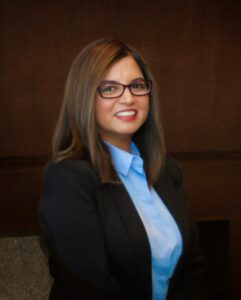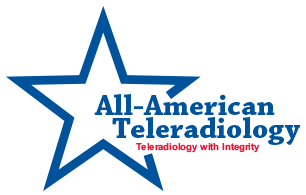 By Shella Farooki, M.D.
By Shella Farooki, M.D.
Radiologist
All-American Teleradiology
August 31, 2020
While national politicians and other governors are mired in partisan disputes, Governor Mike DeWine is rising above the fray to find evidence-based solutions to the COVID-19 pandemic. As an Ohio doctor who works in our state and others, I applaud DeWine’s focus on saving lives. And I urge him to go further by renewing, expanding, and making permanent Executive Order 2020-01D before it expires in September to allow out-of-state physicians to practice without an Ohio license.
In May, DeWine signed Executive Order 2020-01D to allow nurses the emergency permission to start practicing medicine as soon as they get their licenses. The Executive Order also sped up the licensing process for out-of-state nurses for the duration of the pandemic. These measures helped get more medical personnel on the ground as COVID-19 spread. They strengthened Ohio’s medical facilities. And they proved that rescinding unnecessary licensing restrictions for another qualified class of medical professional – physicians – will improve Ohioans’ health and welfare.
The difference between current out-of-state physician licensing standards and those for nurses are night and day. As of this writing, licensed and qualified out-of-state physicians must go through a time-consuming and expensive process to become licensed. This government interference in the patient-physician relationship increases costs and decreases care in both normal times and emergencies. Meanwhile, nurses can get to work practically the same day on which they receive their license.
The reality is that complex licensing regimes aren’t practical even when there is no public health emergency. Making a fully-trained and qualified medical professional take yet another test won’t improve patient care, and refusing to recognize a qualification they earned in another state worsens patient care. Permanently expanding the emergency declarations for nurses to physicians would improve patient health, decrease patient costs, and create statewide consistency for medical professionals. And it would remove another layer of bureaucracy which separates us from our patients.
This isn’t a theoretical problem. I’ve been a physician for 20 years, half of that engaged in teleradiology, and I’m licensed to practice in 15 states. Despite my qualifications, I’ve been waiting for three months to get relicensed in Georgia because the state’s licensing bureaucracy keeps crossing threads with licensing bureaucracies in other states. If the COVID-19 hotspots spread, and Georgia needed physicians on short notice, I can’t help – even though telemedicine makes me available to any patient in any part of Georgia at virtually any time.
The same is true for an out-of-state physician coming to Ohio to help fight the pandemic.
From emergency occupational licensing rescissions to the announcement last week of an interstate testing pact, DeWine has proven that partisan politics takes a back seat to Ohioan’s safety. But emergencies don’t just happen when someone contracts a pandemic virus; for the average family, an emergency like a car accident or a heart attack could happen any day. Unfortunately, it’s been difficult for many Ohioans to see their primary care physician, let alone a specialist, throughout the past few months. We have to do everything we can to prevent an even more serious shortage of physicians in the future – the kind that turns a routine healthcare need into a crisis. Making it easier for physicians from other states to practice here would help us quickly scale responses to future emergencies, expand healthcare access, and reduce costs for families.
As the coronavirus continues to divide Americans on partisan lines, I urge Governor DeWine to act in the best interests of patients by renewing, expanding, and making permanent EO 2020-01D. It will help Ohio now and forevermore empower the best care through the best method: a strong patient-physician relationship.
Dr. Shella Farooki is a Board-Certified, Fellowship-Trained radiologist specializing in musculoskeletal imaging. She resides in Dublin, Ohio, and provides interpretative consultations to physician practices throughout the United States via All-American Teleradiology.

